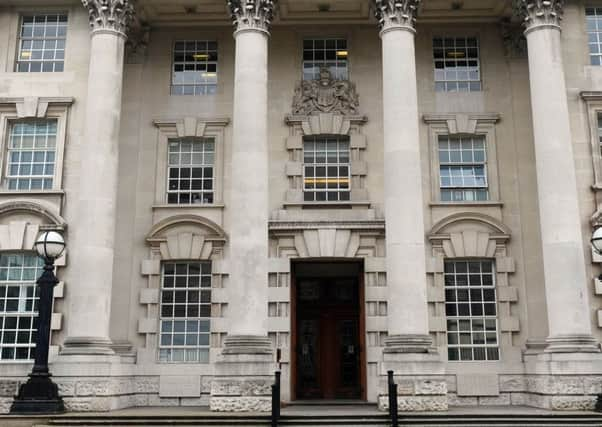'˜Gay' Pakistani man wins first stage of battle to remain in NI


He was granted leave to seek a judicial review amid claims a fatwa issued by his village mosque promised “a comfortable place in Paradise” to anyone who kills him.
The 35-year-old, referred to only as JK, is challenging a Home Office decision to order his removal from the United Kingdom.
Advertisement
Hide AdAdvertisement
Hide AdA judge ruled that potentially reliable new documents setting out the extent of persecution on return to Pakistan could result in him succeeding at a fresh immigration tribunal.
JK arrived in Belfast in 2013, seeking asylum on the basis of his sexuality.
His claim was turned down a year later, and then in 2016 the Home Office rejected further submissions sent on his behalf.
The court heard he came from a village 200km away from the city of Rawalpindi.
Advertisement
Hide AdAdvertisement
Hide AdDespite being married and having a son, he was said to secretly pursued a homosexual lifestyle while working in Rawalpindi.
In 2000 his father allegedly beat him a rod, fracturing his leg, after suspecting he was gay.
Leaving his wife and child behind in Pakistan, JK formed a partnership with a Morrocan man in Belfast.
He was homeless for a period when that relationship ended, but was then taken in by a Pakistani woman living in Bangor.
Advertisement
Hide AdAdvertisement
Hide AdDenying his asylum claim in 2014, an immigration judge rejected the account of his background and found he was not gay.
However, further unverified documents were later provided by JK’s solicitor, including one written in Urdu, allegedly from an uncle and headed ‘For your eyes only’.
Translated, it claimed that a “hornet’s nest” has been disturbed in the man’s home area due to his sexual behaviour.
The document went on: “The entire village is hell bent to teach lesson not only to you, but also to your parents on the ground that they have given birth to such immoral person who believes in homosexuality.
Advertisement
Hide AdAdvertisement
Hide Ad“The entire village is waiting for (the) day when you will com back and would be lynched.”
In other sections it claimed JK’s father was openly insulted and physically thrashed because of his sexuality.
Advising that any return to his native country would be “a recipe for death”, the document added: “Fatwa was issued by the Mosque of village Iman... declared that anyone who will kill you the moment you enter Pakistan would be awarded a comfortable place in Paradise.”
Other messages said to be from JK’s father and brother stated that all family ties have been cut off and again threatening death to him if he tries to come home.
Advertisement
Hide AdAdvertisement
Hide AdThe Home Office upheld the original decision against him after concluding the documents were self-serving and failed to show a well-founded fear of persecution.
But in a newly published ruling on the man’s judicial review challenge, Mr Justice Maguire pointed out that gay people in Pakistan can be subject to discrimination, harassment and violence - most commonly within he family.
Referring to Home Office Country Information and Guidance, he noted that homosexual activity in the country remains illegal.
Despite acknowledging “infirmities” in the newly submitted documents, the judge held that, if true, they show JK may be gay and at risk if he returns home.
Advertisement
Hide AdAdvertisement
Hide AdHe held that it would be arguably too sweeping to completely dismiss their reliability.
Granting leave for a full hearing, Mr Justice Maguire said: “This, of course, is not to say that it is the court’s view that the applicant would succeed at a further tribunal hearing, but it is to say that the court, applying anxious scrutiny, could not rule out such an outcome.”